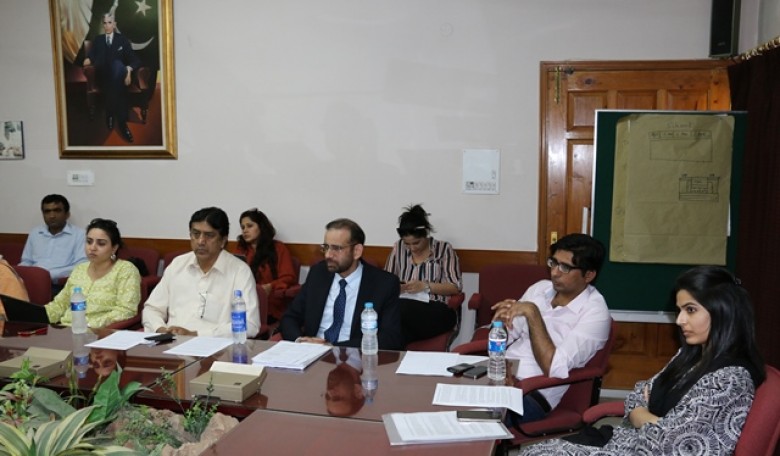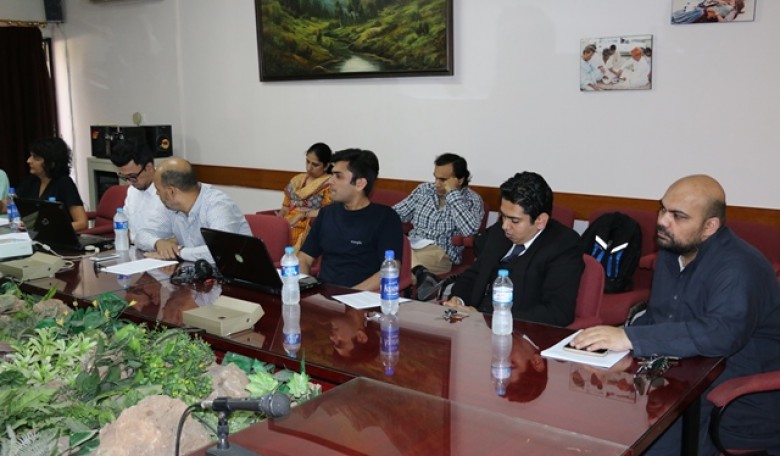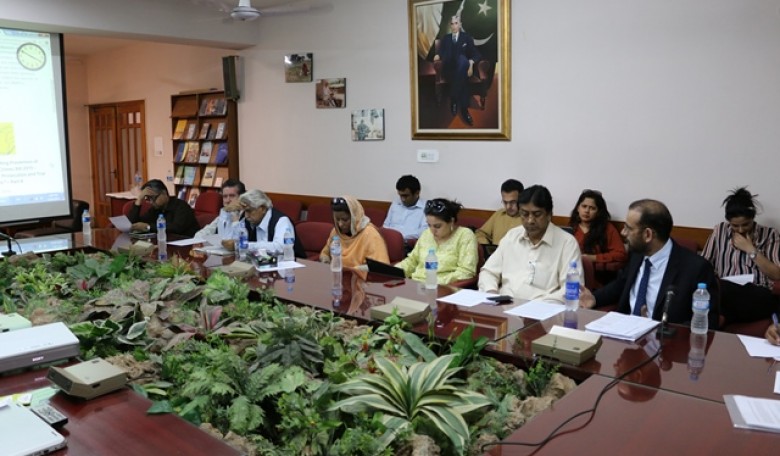Islamabad, 27 April 2015: Media Matters for Democracy and Bytes for All hosted a joint consultative meeting bringing together various stakeholders including parliamentarians to discuss reforms in draconian Prevention of Electronic Crimes Bill proposed by the government.
The consultation was aimed at bringing together parliamentarians and other stakeholders on a forum to discuss and formulate a plan to ensure citizens’ right to free expression are not endangered during the process of cyber crimes legislation. A rich political, parliamentary, industry and civil society representation facilitated a vibrant discussion. The group also touched up-on the human rights’ violation aspect of proposed legislation and critically analysed the suggestion of a Privacy Commissioner.
PECB 2015 is the newly proposed cyber crimes legislation under the National Action Plan framework, the draft bill of which has been approved by the Standing Committee on Information and Technology and submitted to the Lower House for debate. While some sections of this Bill, identifies and attempts to counter the crimes using cyber space, others try to restrict cyber space as a medium of free expression at the cost of fundamental rights of the citizens.
Following charter of demands was agreed upon by the members and representatives present at the consultation.
Charter of Demands on Prevention of Electronic Crimes Bill (PECB) 2015
This charter has been prepared in response to the draft of Prevention of Electronic Crimes Bill (PECB) 2015, approved by the National Assembly Standing Committee on Information Technology. The human rights concerns related to the approved draft of PECB have been well documented. The draft in its current form can easily be exploited leading to curbs on fundamental rights including the right to freedom of expression, right to information, freedom of association and assembly and privacy rights among others.
This charter aims to
- Reject the premise of ‘security’ within which this draft has been prepared;
- Insist on focusing on human rights and consumer protection during legislative process;
- Demand the redrafting of the bill and taking necessary measures to ensure human rights are protected after its implementation.
We are also mindful of the implications of enacting such a law while Pakistan Protection Ordinance and Fair Trail Act are in place, compromising citizen rights that are guaranteed in normal, peacetime situations. We are concerned that in the spirit of counter terrorism, the government has failed to ensure the protection of human rights within this draft. In the light of these concerns, we ask the government;
- To review the bill within the globally accepted human rights framework with the purpose of ensuring protection of fundamental rights, instead of compromising them through potential abuse inherent in the current framing of the draft bill.
- To ensure basic protections on the ground for citizens’ rights before enactment of this bill by;
- Appointing and setting up a strong, independent and well-resourced privacy commission;
- Extending the National Commission for Human Rights Act to law enforcement for better transparency and accountability.
- To strengthen data protection clauses in the bill, ensuring business friendly environment with unfettered access to the cyberspace
- To developan action plan that ensures that the interpretations and implementation mechanism for the bill includes experts and expertise on digital rights. This should include resource allocation and planning for capacity building ofjudiciary, lawyers and law enforcement institutions including awareness raising of citizens.
We stronglyurge the Standing Committees on Human Rights in National Assembly and Senate to call for a review of the draft, before it is tabled in the House. We call for support from civil society, IT industry and the media to help convince the government to consider this charter of demands.



